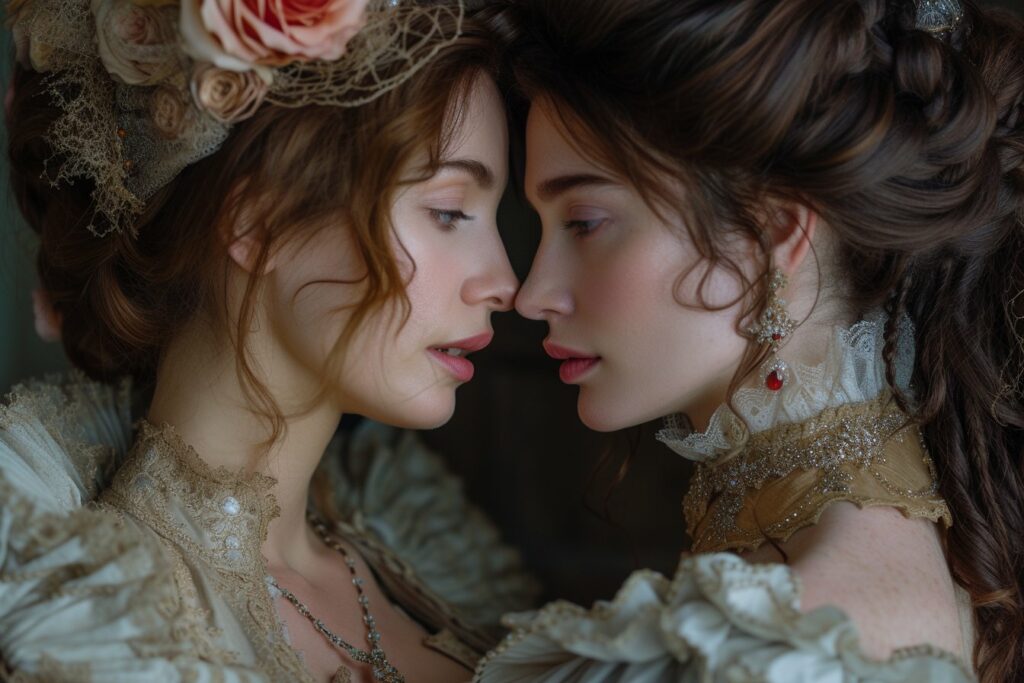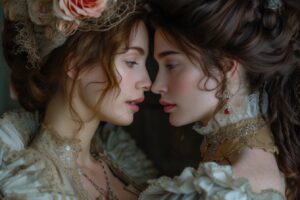An Unconventional Romantic Comedy
In the unconventional romantic comedy, La Belle et la Belle, director Sophie Fillières breaks away from the typical French cinema realism by focusing on a unique meeting between Margaux and her younger self. Inspired by Francis Ford Coppola’s era-defying film Peggy Sue Got Married, La Belle et la Belle challenges the viewer to question love and time.
During an evening in Paris, Margaux encounters herself at two different ages – one just starting in life and another who already knows what awaits her. Their friends from the past and present brush against each other as memories and aspirations intertwine, reflected in their gazes from afar. This brilliant concept delves into the enigma of love as something simultaneously new and old.
La Belle et la Belle avoids being a mere concept film and instead delves deep into the sentimental journey of love experienced through both Margaux’s perspectives.
The Temptation of Temporal Paradoxes
While it may be tempting to explore the temporal paradoxes seemingly presented by this premise, La Belle et la Belle remains steadfast in its romantic storyline. Both versions of Margaux fall in love with the same man, Marc, in similar yet distinct ways. At the heart of this story is how Sophie Fillières explores the dual consciousness of Margaux.
- One Margaux embraces the excitement and unpredictability of newfound love
- The other Margaux understands the complexities and nuances that arise over time
Through this exploration, Fillières avoids turning La Belle et la Belle into a high-concept film confined to a flashy pitch and instead delves deeper into the complexities of romantic emotions.
The Power of Language in Love and Life
Beyond just the intriguing storyline, Fillières cleverly uses language as a tool to uncover the intricacies of love and life. With each character’s unique way of speaking, whether it’s the friend who punctuates every sentence with words like “like” or “not at all,” or the older Margaux’s verbal extravagances, we see that language plays an essential role in expressing our feelings and emotions.
In this way, La Belle et la Belle highlights how our experiences have already been lived, evident through our déjà vu-like encounters with familiar phrases and expressions.
Whether we are first experiencing love or seeking comfort in memories, the power of language unites us to similar past experiences. In turn, this subtle concept challenges the idea of something ever being truly new or truly old.
Challenging Traditional Romantic Comedies
La Belle et la Belle stands out among modern romantic comedies by daring to challenge conventional storytelling through its creative premise and focus on time and language. The dual perspective of the two Margaux characters represents a fresh take on romantic relationships and adds depth to our understanding of love and sentiments.
Taking the Audience Along for the Journey
As the viewer follows both versions of Margaux along their tandem sentimental journey, they can’t help but become immersed in the overarching theme: the timeless nature of love. This is exemplified particularly when both Margauxs fall head over heels for Marc as Sophie Fillières invites the audience to question the meaning of love through the lens of time.
Pushing the Boundaries of French Cinema
In a broader sense, La Belle et la Belle represents a refreshing departure from traditional French cinema. By breaking through the usual barrier of realism and exploring themes of time, memory, love, and experience – all while maintaining an engaging romantic storyline – Sophie Fillières has crafted a truly unique film that challenges interpretations of the romantic comedy genre.
At its core, La Belle et la Belle is a thought-provoking exploration of the timeless nature of love, embracing both its newness and familiarity along the way.







